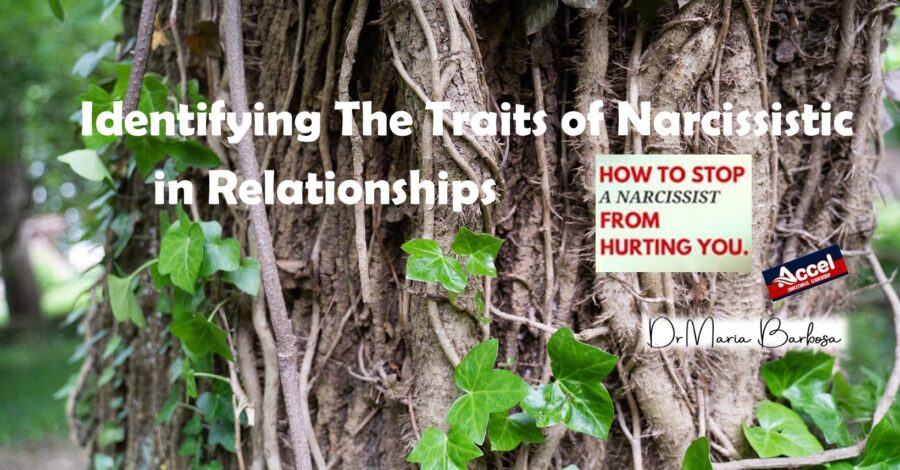How to Handle a Controlling Family Member Who Is a Narcissist and Manipulative
Dealing with a controlling family member who exhibits narcissistic and manipulative behaviors can be one of the most challenging and emotionally draining experiences. Such individuals often create toxic environments that can disrupt family harmony and inflict lasting emotional scars. Understanding how to navigate these relationships effectively is crucial for your well-being and maintaining your sense of self. In this article, we will explore in detail how to identify, cope with, and manage a controlling family member who is both narcissistic and manipulative.
“Does God forgive narcissists?
The difference is my sin may not impact, cripple, or hurt as much as a narcissist’s sin, but my sin needs God’s forgiveness just the same. It is true to that God’s love covers even the narcissist’s sin, but it does not mean his or her behavior is excused. It does not mean that you have to tolerate it. If you are part of a narcissist’s environment, whether at home, work, church, etc., know that you can set boundaries with him or her, you can ask for help, and, if necessary, you can walk away.”
Why Narcissistic Husbands Seek Control?
- Insecurity and Fear of Abandonment: Despite their outward confidence, narcissistic individuals often harbor deep insecurities and a fear of abandonment. By controlling you, your husband may feel he is preventing you from leaving or asserting your independence. This control gives him a sense of security, even though it’s rooted in fear and insecurity.
- Need for Power and Dominance: For many narcissists, relationships are seen as a way to exert power and dominance over others. Controlling you allows your husband to feel powerful and superior, reinforcing his belief in his own importance.
- Inability to Empathize: A lack of empathy is a hallmark of narcissism, and it plays a significant role in why your husband seeks to control you. He may genuinely not understand or care about how his behavior affects you, as his primary concern is maintaining his own comfort and control.
- How to Protect Yourself: Establish Boundaries: Setting and enforcing clear boundaries is one of the most important steps you can take to protect yourself from a controlling narcissistic husband. These boundaries should clearly define what behaviors you will not tolerate, such as verbal abuse, financial control, or emotional manipulation. Once established, it’s crucial to consistently enforce these boundaries, even if your husband tries to push back.
- Seek Support: Dealing with a controlling and narcissistic spouse can be isolating, so it’s vital to build a support network of trusted friends, family, or professionals. A therapist or counselor can provide guidance and help you develop strategies for coping with the situation. Support groups, whether in person or online, can also offer a sense of community and understanding.
- Consider Your Options: If your husband’s controlling behavior is severely affecting your mental health, safety, or well-being, it may be necessary to consider your options. This could include couples therapy, legal advice, or even separation if the situation becomes unbearable. It’s essential to prioritize your well-being and take steps to protect yourself from further harm.
- Maintain Your Independence: Maintaining your independence is crucial when dealing with a controlling husband. This includes having your own financial resources, maintaining relationships with friends and family, and pursuing your own interests and hobbies. Independence can help you feel more empowered and less reliant on your husband’s approval or control.
Why a Narcissistic Wife Seeks Control?
A relationship with a narcissistic wife can be overwhelming and confusing, especially when her behavior becomes controlling. Narcissism, characterized by an inflated sense of self-importance and a lack of empathy, often drives the need for dominance in relationships. Understanding the reasons behind this controlling behavior is crucial for managing the situation and protecting your emotional well-being. Here’s why a narcissistic wife may seek to control you.
- Reasons Narcissistic Wives Seek Control– Insecurity and Fear of Rejection: Despite their outward confidence, many narcissistic individuals are deeply insecure. A narcissistic wife may fear rejection or abandonment, which drives her need to control her partner. By exerting control, she believes she can prevent you from leaving or asserting your independence, thus reducing her fear of being alone or unwanted.
- Need for Power and Dominance: A narcissistic wife may see her relationship as a means to assert power and dominance. For her, control is a way to maintain the upper hand in the relationship, ensuring that she is always in a position of authority. This power dynamic can lead to a situation where you feel trapped, unable to make decisions or express your needs without facing resistance or manipulation.
- Lack of Empathy: A defining characteristic of narcissism is a lack of empathy, which means your wife may not fully understand or care about how her controlling behavior affects you. Her primary focus is on her own needs and desires, often at the expense of yours. This lack of empathy allows her to justify her controlling actions, as she may not see the harm they cause.
- Desire for Perfection: Narcissistic individuals often have an idealized image of themselves and their relationships. A narcissistic wife may seek control to ensure that everything aligns with her vision of perfection. This can lead to micromanagement, where she tries to dictate every aspect of your life, from how you dress to how you interact with others, all in an effort to maintain this perfect image.
- Emotional Manipulation: Control in a relationship with a narcissistic wife often involves emotional manipulation. She may use tactics like gaslighting, where she makes you doubt your reality, or guilt-tripping, where she makes you feel responsible for her happiness. These tactics are designed to weaken your confidence and make you more dependent on her, thereby increasing her control over you.
- Signs of Controlling Behavior-Isolation: A common tactic used by narcissistic wives is isolation. She may discourage or prevent you from spending time with friends and family, thereby increasing your dependence on her. By isolating you from your support network, she ensures that you have fewer resources to challenge her control.
- Financial Control: A narcissistic wife may seek to control the finances in the relationship, limiting your access to money or making financial decisions without your input. This financial control can be a powerful tool to keep you dependent and compliant, as it restricts your ability to make independent choices.
- Micromanagement: In a relationship with a narcissistic wife, micromanagement is a common form of control. She may dictate your daily activities, decisions, and even thoughts, leaving you with little room for autonomy. This can be incredibly draining and can erode your sense of self over time.
- Jealousy and Possessiveness: A narcissistic wife may exhibit intense jealousy and possessiveness, often under the guise of love or concern. This behavior is typically another form of control, as it allows her to monitor and restrict your interactions with others, ensuring that she remains the center of your attention.
Coping with a Controlling Narcissistic Wife
- Set Boundaries: Establishing clear and firm boundaries is crucial when dealing with a controlling narcissistic wife. These boundaries should clearly define what behaviors are unacceptable and what you will not tolerate. Communicate these boundaries assertively, and be prepared to enforce them consistently.
- Seek Support: Coping with a narcissistic spouse can be incredibly isolating, so it’s essential to seek support from trusted friends, family, or a therapist. Professional support can provide you with strategies to manage the situation and protect your mental and emotional health. If your wife’s controlling behavior is severely impacting your well-being, it may be necessary to consider your options. This could include couples therapy, legal advice, or even separation if the situation becomes unbearable. Your well-being should always be your top priority, and it’s important to take steps that protect your mental and emotional health.
How Couples with a Narcissistic Spouse Can Improve Their Relationship or Save Their Marriage
Being in a relationship with a narcissistic spouse can be incredibly challenging. Narcissism, characterized by an inflated sense of self-importance, a deep need for admiration, and a lack of empathy for others, can create significant strain in a marriage. However, it is possible for couples to improve their relationship or even save their marriage if both partners are willing to work towards positive change. Here’s how couples with a narcissistic spouse can take steps to strengthen their bond and navigate the complexities of their relationship.
The Hope for Change: While narcissism is a deeply ingrained personality trait, it is not entirely impossible for a narcissistic spouse to change or for the relationship to improve. However, it requires a significant amount of effort, self-awareness, and commitment from both partners. The non-narcissistic partner must also establish clear boundaries and prioritize their own well-being in the process.
Strategies for Improving the Relationship
1. Establish Clear Boundaries: One of the most crucial steps in improving a relationship with a narcissistic spouse is to establish clear and firm boundaries. Boundaries help protect your emotional and mental well-being and define what behaviors are acceptable. For example, you may set boundaries around how you expect to be treated in conversations, how conflicts should be handled, or how much space you need for yourself.
Key Tips:
- Communicate your boundaries assertively and calmly.
- Be consistent in enforcing these boundaries, even if it causes temporary conflict.
- Recognize that setting boundaries is not about controlling your spouse but about protecting your own well-being.
2. Encourage Self-Reflection and Self-Awareness: For a narcissistic spouse to change, they must first become aware of their behavior and its impact on the relationship. This can be challenging, as narcissists often have a distorted self-image and may struggle to acknowledge their flaws. However, encouraging self-reflection and fostering an environment where your spouse feels safe to explore their behavior can be beneficial.
Key Tips:
- Encourage your spouse to reflect on their actions and how they affect you.
- Approach the conversation with empathy, avoiding blame or criticism.
- Suggest therapy or counseling, where a professional can guide your spouse through self-discovery and personal growth.
3. Focus on Communication: Effective communication is vital in any relationship, but it is especially important when dealing with a narcissistic spouse. The way you communicate can either exacerbate conflicts or help resolve them. It’s important to remain calm, assertive, and clear in your communication, avoiding emotional outbursts or passive-aggressive behavior.
Key Tips:
- Use “I” statements to express your feelings without sounding accusatory (e.g., “I feel hurt when…”).
- Avoid engaging in arguments or power struggles that can escalate the situation.
- Practice active listening, where you genuinely listen to your spouse’s concerns and respond thoughtfully.
4. Seek Professional Help: Marriage counseling or individual therapy can be incredibly beneficial for couples dealing with narcissism. A therapist can help both partners understand the dynamics of their relationship, address underlying issues, and develop healthier communication and coping strategies. Therapy can also provide a safe space for the narcissistic spouse to explore their behavior and work towards change.
Key Tips:
- Choose a therapist experienced in dealing with narcissism and relationship dynamics.
- Be open to the therapist’s suggestions and be willing to make changes in your behavior as well.
- Consider individual therapy for yourself if you need additional support in coping with the challenges of your relationship.
5. Practice Patience and Compassion: Improving a relationship with a narcissistic spouse takes time and patience. Change does not happen overnight, and there may be setbacks along the way. It’s important to approach the situation with compassion, both for yourself and your spouse. Recognize that narcissism is a complex personality trait, often rooted in deep-seated insecurities and fears.
Key Tips:
- Celebrate small victories and progress in your relationship.
- Practice self-compassion, acknowledging that you are doing your best in a difficult situation.
- Be patient with your spouse’s growth, but also be realistic about what you can expect.
6. Prioritize Self-Care: When dealing with a narcissistic spouse, it’s easy to become consumed by the challenges of the relationship and neglect your own needs. However, self-care is essential for maintaining your mental and emotional health. Prioritizing self-care can help you build resilience, reduce stress, and maintain a sense of balance in your life.
Key Tips:
- Engage in activities that bring you joy and relaxation, whether it’s exercise, hobbies, or spending time with friends.
- Set aside time each day for self-care, even if it’s just a few minutes of quiet reflection or deep breathing.
- Consider seeking support from a therapist or support group to help you navigate the complexities of your relationship.
7. Evaluate the Future of the Relationship: While many couples can make significant improvements in their relationship, there may come a time when you need to evaluate whether the relationship is worth saving. If your spouse is unwilling to change, or if their behavior continues to cause significant harm to your well-being, it may be necessary to consider other options, including separation or divorce.
Key Tips:
- Reflect on the overall health of the relationship and whether it aligns with your values and needs.
- Consider the impact of the relationship on your mental and emotional health.
- Seek legal or financial advice if you are considering separation or divorce.
Keep in mind: Navigating a relationship with a narcissistic spouse is undoubtedly challenging, but it is possible to improve the relationship or even save the marriage with the right strategies and support. By establishing boundaries, encouraging self-awareness, focusing on communication, seeking professional help, and prioritizing self-care, couples can work towards a healthier and more balanced relationship. However, it’s also important to recognize when the relationship may no longer be viable and to take steps to protect your own well-being if necessary.
Understanding Narcissistic and Manipulative Behavior
Recognizing Narcissistic Traits
Narcissism is more than just self-centeredness; it is a personality disorder characterized by an inflated sense of importance, a deep need for excessive attention and admiration, and a lack of empathy for others. Narcissists often believe they are superior to those around them and expect constant praise and recognition, regardless of their actual achievements.
Some common signs of narcissism include:
- Grandiosity: An exaggerated sense of self-importance.
- Entitlement: Expecting special treatment and compliance from others.
- Manipulation: Using deceit or coercion to achieve personal goals.
- Lack of Empathy: Inability to recognize or understand others’ feelings and needs.
- Exploitation: Taking advantage of others for personal gain.
Identifying Manipulative Behavior
Manipulative behavior often accompanies narcissism, as it is a tool used to control and influence others. Manipulators are skilled at creating confusion, guilt, and doubt to achieve their objectives. They may use tactics such as gaslighting, passive-aggressive behavior, and emotional blackmail.
Key indicators of manipulation include:
- Gaslighting: Making you question your reality or memories.
- Emotional Blackmail: Using fear, obligation, or guilt to control your actions.
- Blame Shifting: Refusing to take responsibility and blaming others for their problems.
- Passive-Aggressive Behavior: Expressing anger or frustration indirectly rather than openly.
- Strategies for Coping with a Controlling Narcissistic Family Member
Setting Firm Boundaries
One of the most effective ways to protect yourself from a controlling family member is by establishing clear and firm boundaries. Boundaries are the limits you set regarding what you will and will not tolerate in your interactions. When dealing with a narcissistic manipulator, it is essential to communicate these boundaries assertively and consistently.
To set effective boundaries:
- Identify your limits: Understand what behaviors are unacceptable to you.
- Communicate clearly: State your boundaries directly, without ambiguity.
- Be consistent: Reinforce your boundaries every time they are crossed.
- Avoid justifying: You do not need to explain or defend your boundaries.
Practicing Emotional Detachment
Emotional detachment, or disengagement, is a valuable skill when dealing with manipulative individuals. It involves stepping back emotionally and not allowing their behavior to affect your mental state. By detaching, you protect your emotional well-being and prevent the manipulator from controlling your reactions.
Steps to practice emotional detachment include:
- Recognize triggers: Identify situations or behaviors that provoke emotional responses.
- Stay calm: Maintain a calm and neutral demeanor in interactions.
- Focus on facts: Stick to objective facts rather than getting drawn into emotional arguments.
- Limit engagement: Minimize unnecessary contact or conversations.
Documenting Interactions
Keeping a record of your interactions with the narcissistic family member can be helpful, especially if the situation escalates to involve third parties, such as other family members or legal professionals. Documentation serves as a factual account of events and can provide clarity when memories become distorted.
When documenting interactions:
- Record dates and times: Note when the interaction took place.
- Describe the event: Include details of what was said and done.
- Be objective: Stick to facts and avoid inserting opinions or interpretations.
- Keep records secure: Store your documentation in a safe and private place.
Seeking External Support
Dealing with a narcissistic and manipulative family member can be isolating. It’s crucial to build a support network of trusted friends, family members, or professionals who can offer perspective and assistance. Therapy or counseling can provide a safe space to explore your feelings, develop coping strategies, and receive validation.
Options for external support:
- Counseling or therapy: A licensed professional can offer tailored advice and emotional support.
- Support groups: Joining a group of individuals facing similar challenges can provide encouragement and shared experiences.
- Legal advice: If the situation involves legal matters, seeking advice from a legal professional is essential.
- Confide in trusted friends or family: Choose individuals who are empathetic and can offer practical support.
Navigating Family Dynamics
Managing Family Expectations
In families with a narcissistic and manipulative member, family dynamics can be complex. Other family members may enable or excuse the narcissist’s behavior, leading to a lack of support or understanding for the victim. Managing these dynamics requires patience, assertiveness, and sometimes, difficult conversations.
Strategies for managing family dynamics include:
- Communicate openly: Share your concerns with other family members, if safe to do so.
- Avoid triangulation: Don’t get caught in the middle of conflicts between the narcissist and other family members.
- Stand your ground: Maintain your boundaries, even if others try to pressure you to conform.
- Recognize enablers: Be aware of family members who may support or excuse the narcissist’s behavior.
Considering Limited Contact
In extreme cases, limited contact or no contact may be the healthiest option. This decision is particularly relevant if the narcissistic family member is abusive or poses a significant threat to your mental or physical well-being. While difficult, distancing yourself from a toxic individual can lead to greater peace and a healthier life.
If you choose limited or no contact:
- Plan ahead: Consider how you will implement and maintain limited contact.
- Inform others as necessary: Let other family members know about your decision if it impacts them.
- Stick to your decision: Once you’ve set boundaries, avoid backtracking unless circumstances change significantly.
- Prepare for backlash: Narcissists may react negatively to reduced contact, so be ready to enforce your boundaries firmly.
Keep in mind: Dealing with a controlling family member who is both narcissistic and manipulative is challenging, but it is possible to protect yourself and maintain your peace of mind. By understanding their behavior, setting boundaries, practicing emotional detachment, and seeking support, you can navigate these complex relationships effectively. Remember, your well-being should always come first, and it is okay to prioritize your mental and emotional health.
By: Maria Pinto Barbosa PhD #DrBarbosa
WhatsApp: 01-386-206-6325 for client scheduling appointment
Certified as School Board of Education / PHD-Doctor of Philosophy in Cristian Clinical Counseling. ACCEL-Holistic Life Coach / Founder-Director of ACCEL Educational Leadership. Specialized on Temperaments – Personalities.
Discover more from Dr Maria Barbosa
Subscribe to get the latest posts sent to your email.





